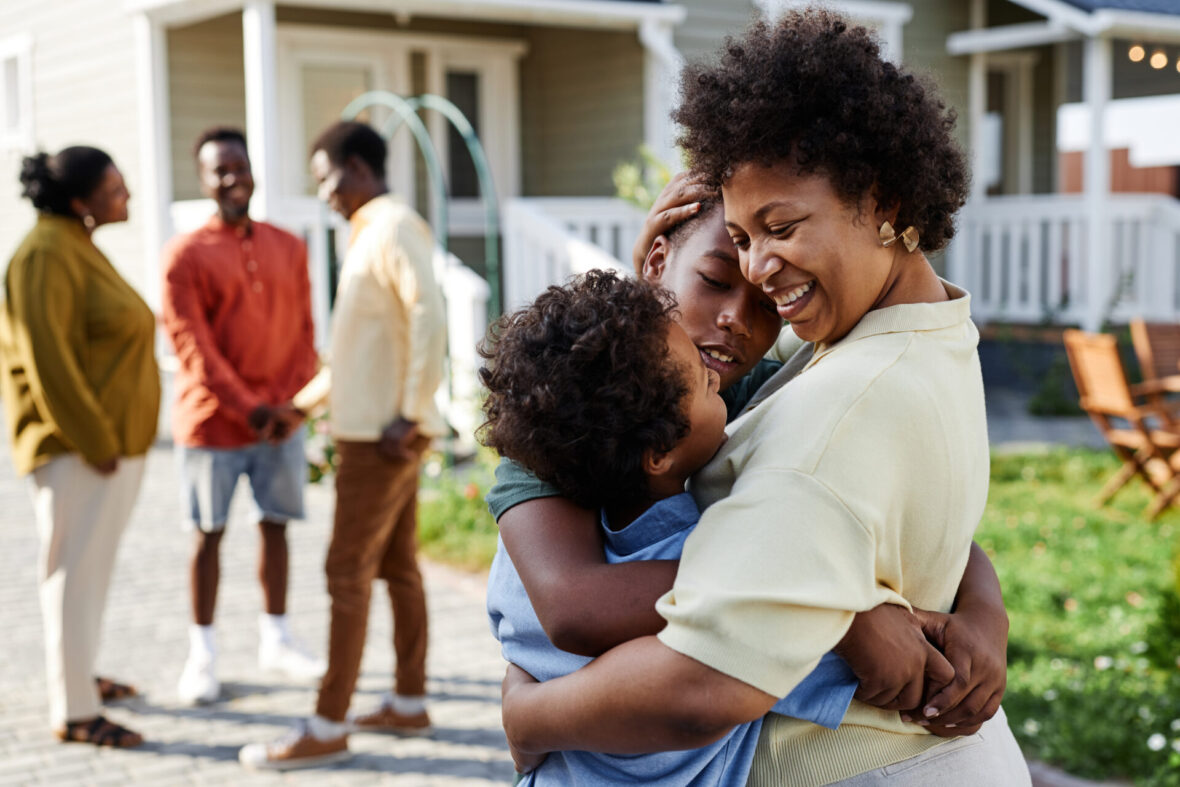Shared Parenting: The Importance of Foster Parents and Biological Parents Working Together

“When you decide to foster a child, you’re not just taking in the child, you’re taking in a whole family.”
Those are the words of Wellpoint Care Network foster parent Emily Lloyd. She and her husband Jacob have had five children placed with them over the last two years. For the Lloyds, fostering is all about opening their home to children who temporarily need a safe and loving place to live.
As Emily has explained it to her 5-year-old biological son: “These kids are with us for a little bit because their mom and dad were having a hard time. We’re here to help them so that they can take care of themselves. When they’re ready, they can all be back together as a family again.”
At Wellpoint Care Network, reunification is always the goal. We believe that foster care is meant to give families the time they need to make necessary changes so the child can safely return to their home and community. It is not intended to be permanent.
“If I was giving advice to anybody looking to foster, it’s to remember that you’re not just taking care of a child. It’s your job to also advocate for the whole family,” says Emily. “I didn’t realize that going into this; it was something that I had to learn.”
Communication is key
For the Lloyds, good foster care means plenty of open communication between themselves and the biological parents.
“I’m a huge believer in communication
Emily Lloyd, Foster Mom
[…] We are co-parenting this baby.”
“I’m a huge believer in communication,” says Emily. “I think sometimes biological parents can lose the motivation to keep working for their kids because they’re not receiving those kinds of updates. We are co-parenting this baby.”
Wellpoint Care Network Case Manager Nicole Parrish has seen firsthand the impact that open communication and advocacy can have, even in cases where reunification seemed impossible.
“Emily and Jacob really made an impact on that mom because they communicated with her as an equal,” says Parrish. “For someone without a lot of support, just knowing someone was on her side was a big motivator. And now, she’s going to be reunified with her son.”
Making lasting connections
There are currently more than 7,000 Wisconsin children in need of foster care. We’re constantly searching for caring people from all backgrounds, cultures, neighborhoods and family structures to represent the diverse range of children we serve.
Even though fostering is a temporary process, the bonds that are formed are real.
“Our son refers to our current foster child as his little brother,” said Emily. “He’ll tell others that his little brother is still living with us right now, but that he’s going to go back to his mom soon.”
Thinking about becoming a foster caregiver? You’re probably already more qualified than you think.








